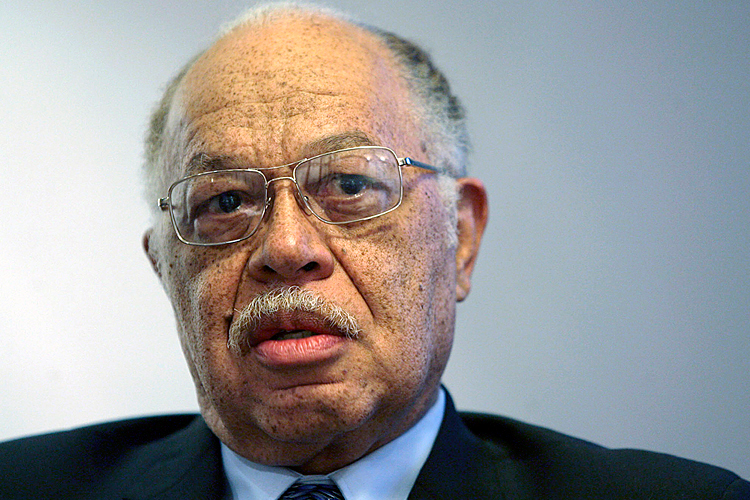In the end, the case of Kermit Gosnell, convicted today of first-degree murder of three babies and numerous other charges, is a local crime story.
That, of course, was the phrase famously used by Washington Post reporter Sarah Kliff to respond to questions about why she hadn’t covered the case. She was widely pilloried by the right for it, and she later said, “I was clearly wrong.” But she wasn’t.
There are, of course, national implications to the case because policy shapes so many aspects of our lives, including how we access healthcare and under what terms. And Gosnell’s dangerous clinic was inexcusably allowed to continue operating despite numerous complaints to state authorities. But if you’re horrified by what Gosnell did — along with the major pro-choice organizations, according to their statements today — you should be satisfied that the criminal justice system did its job. He broke the law, and he is being punished. (Quite possibly with the death penalty, which one self-identified pro-life scholar, at least, opposes for Gosnell out of a sense of consistency.) In the meantime, there is no reason to think the case has changed much about the world outside Gosnell’s.
What this case is not is a referendum on all abortion, a conflation the political strategy around the case has attempted. Gosnell has been convicted of murder because women gave birth to live, viable (or arguably viable) babies that were then murdered. The antiabortion movement has argued that this is the same as abortion, and the difference is inches inside or outside “the womb,” a word that erases the woman bearing it altogether. But such difficult calculations only apply to around 1 percent of all abortions, since 98.7 percent of abortions are conducted before 21 weeks, itself a few weeks before viability. Forty-one states ban abortion after viability except in the direst cases, and most lack a provider to perform one. In poll after poll, Americans are invariably more comfortable with first-trimester abortions — 91.4 percent of all abortions — than later ones, and that makes sense if you think life occurs on a spectrum from a blob of cells to a fully formed person, or some version thereof. People, including pregnant people, have complicated feelings about all this — another reason why the decision should be a personal one — but the law tends to keep in mind the difference between a woman’s autonomy over her body’s gestation and labor of an embryo or fetus and a living, independent person out in the world.
Despite a flurry of coverage in the past few weeks in response to a conservative pressure campaign, a recent Gallup poll finds that nothing has changed about American views on abortion. (There is always the chance the verdict could affect that.) “Gallup finds 26% of Americans saying abortion should be legal under any circumstances and 20% saying it should be illegal in all circumstances. The majority, 52 percent%, opt for something in between, as has been the case in nearly every Gallup measure of this question since 1975 … Despite the news that Gosnell may have murdered newborns in the course of performing late-term abortions, public attitudes on abortion are essentially unchanged.” In other words, people who believe safe abortion is an oxymoron because it results in the death of an embryo or fetus, the woman’s life or desires notwithstanding, haven’t changed their minds. And people who, whatever their individual feelings on abortion, think it should be safe and legal still think that.
The antiabortion movement was very successful in goading the media into more coverage of the trial, but they faced two major barriers to getting their way altogether. First, no one was going to defend Gosnell, because people engaged in making sure women have access to a full range of reproductive services, including but not limited to abortion, would hardly defend the dangerous and disrespectful conditions inside his clinic, nor the conditions that drove the women there to think they had no other choice. And second, because Gosnell was tried and convicted under existing laws, and not even under the full extent of them. (One leader in the antiabortion movement, Hadley Arkes, reacted with dismay when he heard Sen. Mike Lee was calling for “immediate congressional action” over Gosnell. Arkes replied, “There is no need for a ‘resolution,’ Senator Lee, for in case you haven’t noticed, we already have a federal statute here,” meaning the Born-Alive Infants’ Protection Act.)
Unless, of course, these people thought the women who sought abortions at Gosnell’s clinic should have been prosecuted for murder too. That would be a consistent approach, but it wouldn’t be very good politics.


